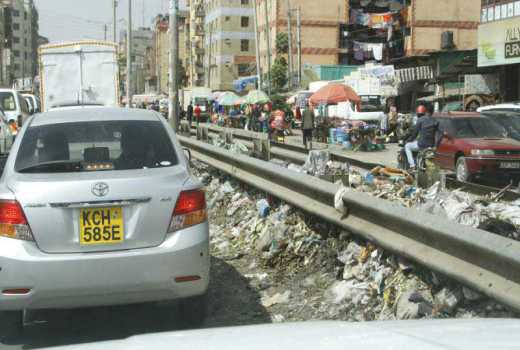×
The Standard e-Paper
Kenya’s Boldest Voice

At the height of the cholera outbreak in July last year, Mike Sonko led journalists to a blocked man hole that was spewing sewage on Kipande Road in Nairobi. As cars splashed the murky stinky water providing a perfect background for the cameras just weeks to the elections, the furious senator had no kind words for Governor Evans Kidero.
“Why is it that among all counties in the country, it is only Nairobi that has cholera?” he asked.